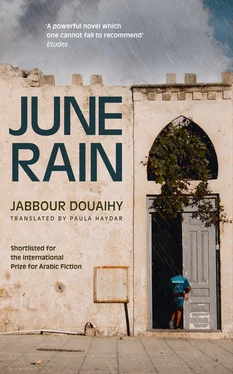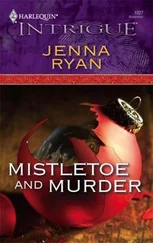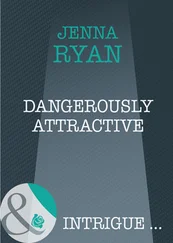As for the people we longed to see every week, on Sunday mornings when they showed two movies, no three, for the price of one — or excerpts of the films rather — at a reduced rate, they weren’t anything like our relatives. They were short-statured heroes like Eddie Murphy or masked men like the Lone Ranger and his stubborn horse, or more obscure faces like Jack Palance who stirred our emotions when they were victorious. We clapped and cheered for them just as we did all of Easter Week when, in addition to us, the theatre was taken over by numerous members of religious brotherhoods and zealous mass-goers wanting to see The Life and Passion of Christ . It was dubbed in Arabic, with the exception of the scene when Christ crucified calls to His heavenly Father and the dubber decided to say it in Aramaic, ‘ Eloi, Eloi, Lama sabachtani .’ There would be huge applause every day from Monday to Sunday when Mary and the women went to Jesus’s tomb and found the stone had been moved away and the tomb was empty. For reasons that weren’t clear, there seemed to be a link between religious piety and the cinema. The owner of the theatre, for example, would hire a man to carry movie advertisements accompanied by a boy ringing a bell. One day he went into one of the inner neighbourhoods holding a picture of Ava Gardner. It was May, the month devoted to the Virgin, and some of the women thought it was a procession with an icon of the Virgin Mary so they stopped what they were doing to make the sign of the cross.
We remembered the theatre sometimes more than we remembered the movies. The owner named it after his son, Marcel, and we would wait until the film started before going up to the ticket window and offering the few coins we had in our possession and he would reluctantly let us in.
When we divided into two quarters and no one but those who had acquired a high level of neutrality dared travel between the two, a second movie theatre opened up for those who were banned from Marcel Cinema. The same films, however, were shown and circulated between the two theatres under agreement of the two owners. And when one of us would miss one of those adventure films when it was shown in the Lower Quarter theatre and heard us talking about it in glowing terms, he felt as if he would suffer an eternal deprivation if he didn’t see it, and so he would go out at night to the Upper Quarter to see it. And although no one there ever recognised him, he’d return to us as if from a successful clandestine military operation, and we would want to congratulate him on his bravery.
They would say that gambling and women revealed a man. Expounding this wise saying might be a lengthy exercise, and even then it wouldn’t reveal how it was possible for the game of Quatorze to have ‘revealed’ Madame Almaaz, one of the most famous of those ladies who fell in love with card playing. She competed with men, outlasting them all night and into the early hours of dawn. To a certain small group of women, playing cards was evidence of their membership in a tight knit circle that frequented the homes of the upper echelon, and it also marked their liberation from housework and other household concerns. For an eligible bachelor aspiring to marry, however, to never have touched a deck of cards was a highly praiseworthy achievement. After all, gambling was one of the quickest ways down the path of domestic destruction.
With the exception of backgammon, with its Turkish words for counting numbers, the new card games, roulette and the rest, came with an extensive French vocabulary, one that also enriched horse racing and betting on horses. Some people specialised in Paroli or unofficial betting offices that doubled winnings and losses. There were also those who became embroiled in horse ‘tugging’ and jockey bribing. And alongside gambling, ‘alongside’ meaning ‘in proximity to’ the poker and baccarat tables, they also practised what they themselves called ‘interest loaning’, in other words, they kept cash in their pockets with which they could instantly cover a losing gambler’s loss so that he could keep playing, in return for very high interest. And they either demanded a promissory note from the debtor or they advanced it to him based on knowing who he was and the certainty that the revolver the lenders carried at their hips guaranteed repayment of the loan, plus interest. Their visits to the Casino du Liban area, where they stationed themselves in anticipation of customers eager to continue placing their bets at the classic roulette table, gave them the chance to meet a class of people they would not otherwise meet. There were sons of rich families from Beirut or Aleppo spending their inheritance and draining the big bank accounts their forefathers had accumulated through profits made in early trading in pharmaceuticals, or household appliances, or cars. And there were all sorts of journalists, poets, and artists who lived out a nightly drama in front of electronic gaming devices or with the hope of getting a ‘zero’ at the roulette table.
There was a story people told about the WWII years about an English soldier in the Upper Hariq district, where the English had a military base, who chanced upon a watchman in one of the olive groves famous for their excellent oil and red soil. The watchman was whipping a poor horse that had refused to budge so hard he made him bleed. The soldier immediately shot the horse in the head and then swung his heavy fist at the watchman’s face so hard it knocked him to the ground, where he left him lying, nearly unconscious, beside the animal, not knowing what crime he had committed. People said that the English soldier had done that because he wanted to put the animal out of the misery it had been suffering at the hands of its ‘barbaric’ owner. At least that was how the locals explained the actions of the soldier who never said a word about it himself.
As for the lesson, if that’s truly what the soldier was after, it was useless, because we went on hitting donkeys with mulberry sticks to make them move and lit fires under mules’ tails if they stumbled or bit their ears to make them get up. We shot at migratory birds, so much that it was said they eventually instinctively altered their migratory pattern to avoid our town, used sticks of dynamite to fish in the river, and kicked tomcats the moment they tried to gain our affection and come inside our circle. When it got to where we set up barricades in front of each other in 1958, we became reckless to the point of strapping dynamite onto dogs or donkeys and sending them across the frontlines in the hope of causing as much destruction as possible, but they’d die half way and their loads would blow up, taken down by the bullets fired at them from behind the opposing barricades. When we wanted to characterise someone as having low morals or as being inferior, we called him a dog, and the best way to defame someone was to write on the walls in the main square that so-and-so was ‘the biggest donkey in all of Syria and Lebanon’. We may have added Syria to Lebanon in order to broaden the geographic circle and thereby include a huge number of people and increase the insult.
For us there were only two types of dog. One was the mongrel — that is, the ugly stray kind of dog that was of no use and had no name. It was filthy and children were afraid of its bite; the worst thing in the world was if the dog was afflicted with rabies. These dogs disappeared little by little from the inhabited areas and eventually only a few, select dogs remained, kept by shepherds. The other kind of dog was the clean and coddled hunting dog that had a name and responded to it and to its owner’s whistle by perking its ears. It was part of a man’s equipment, and men built these dogs wooden kennels in the yard and fed them a balanced diet. Training them became so extensive that one man even taught the dog to fetch his gun from its hiding place whenever he heard an unexplained movement or rustling sound and prompted him to get ready to fight.
Читать дальше












